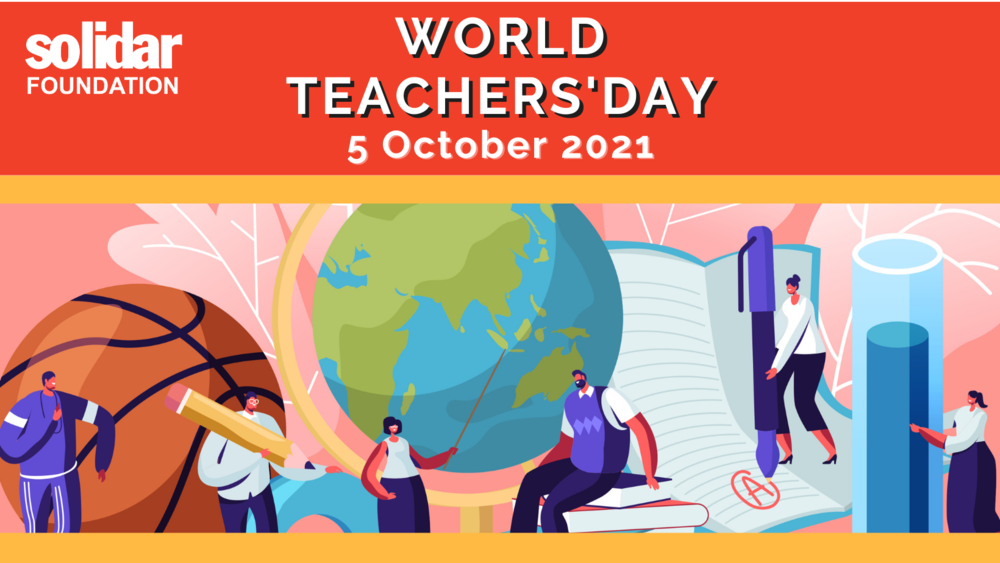Policy Paper – The Commodification of Education and the Prevalence of For-Profit Education Stakeholders: Education for all or education for profit?
On World Teachers’ Day, SOLIDAR Foundation celebrates all those who are educating learners to adapt to their current society. The teaching profession is providing one of the most essential rights that all should have, one without which it is hard for any individual to reach self-determination and fully enjoy all inalienable rights. Though much is owed to teachers, and even more so given how they advanced education in the pandemic, it needs to be mentioned that teachers, by themselves, cannot be expected to support an entire educational system. Education is key for the green and digital transition, and, therefore, teachers are key for the success of the EU project.
SOLIDAR Foundation is proud to be launching on this momentous day its Policy Paper on the Commodification of Education and the Prevalence of For-Profit Education Stakeholders. Teachers’ worsening conditions deepened teacher shortages in Europe, and many of these worsened conditions can be tracked back to the privatization and commercialization of education. By favouring profit and efficiency in education, teachers have been transformed into tools preparing learners for the labour market rather than active participants to an educational process that develops learners to adapt to the complexity of our world, allowing them to choose their path in life and develop harmoniously. SOLIDAR Foundation assessed how the COVID-19 pandemic is being used as a shock to advance privatization by the EdTech sector, contextualizing this process in the decades-long process of commercializing the educational process. Based on this, it has revealed the impact that this has had on teachers’ well-being, but also on the type of citizens that come out of the education system. Today, SOLIDAR Foundation proposes a new model of governance and implementation of education, one that helps teachers and champions their experience and quality, one that unites informal, non-formal and formal education stakeholders in deciding how education is designed and implemented, and one that places learners before profit.
On 12 October, SOLIDAR Foundation presented its Policy Paper in the European Parliament during the inter-committee meeting of the S&D group targeted at the Committee on Culture and Education (CULT) and the Committee on Employment and Social Affairs (EMPL). SOLIDAR Foundation called on policy-makers to stop the commercialization of education and increase the public investement in quality and inclusive education.To this end, SOLIDAR Foundation advocated for the importance of deprioritizing labor market perspective in education and promoting the development of learners’ transversal competences through cooperation among formal, informal and non-formal education providers.
SOLIDAR Foundation will continue working, with its members and partners, in advancing publicly funded, quality education for all, that is implemented in a lifelong and lifewide learning manner.



